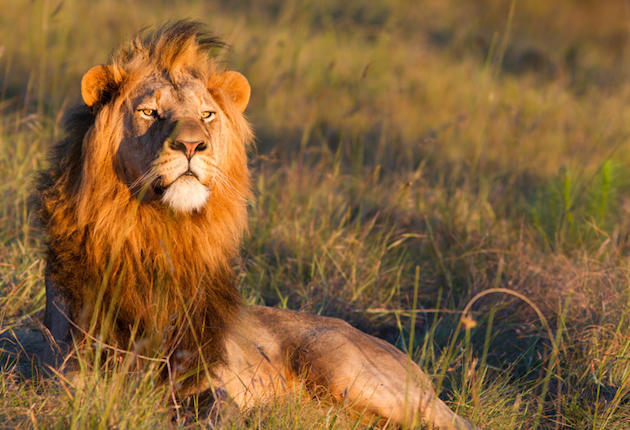Note: Originally published February 23, 2016.
In a bitterly ironic move, the country that banned lion hunting after “Cecil” the lion’s death may have to cull 200 surplus lions. Officials with Zimbabwe’s Bubye Valley Conservancy are trying to move the extra animals to other wildlife areas, but if that fails the lions will be put down—a disservice to the country’s economy, hunters, and the animals themselves.
According to the New Zealand Herald, Bubye is Zimbabwe’s largest wildlife area and home to its highest number of lions—an estimated 500. At one time Bubye welcomed hunters and was able to maintain a healthy lion population. After American dentist Walter Palmer shot a lion outside Hwange National Park in 2015, the area has suffered from what has become known as the “Cecil effect.”
Zimbabwe’s economy and wildlife populations began to suffer immediately after the international uproar over Cecil’s death did. Foreign hunters declined to hunt in the country to avoid the negativity. As the U.S. moved to ban trophy importations and the price of oil continued to drop, hunters from Texas and other American areas refused to make the trip across the Atlantic.
Bubye’s lion population has subsequently gone unmanaged. The predators are decimating antelope herds and throwing the entire area’s ecosystem out of whack.
“I wish we could give about 200 of our lions away to ease the overpopulation,” Blondie Leathem, Bubye’s general manager, said. “If anyone knows of a suitable habitat for them where they will not land up in human conflict, or in wildlife areas where they will not be beaten up because of existing prides, please let us know and help us raise the money to move them.”
Bubye was created in 1994 by Charles Davy, with fencing placed around 2,000 square miles of former cattle ranch. Since then, the lions and other animal populations within it’s borders have been carefully and extensively managed. Oxford University’s lion research project—the same team that tracked Cecil—called Bubye “a success story.”
Hunting and the funds it generates were key components of that success.
Leathem adamantly said he was not a hunter, but admitted to the Herald that he had no other option but to maintain sustainable hunting to ensure Bubye’s continued viability.


Where do people think all those cute cub lion cubs go after all the cute white flesh in Africa get their selfie with them? They grow up and get shot, that’s where. It’s not like you are going to just breed them for clubs and have it all be super awesome after that.
This is what happens when emotion trumps science.
The government should pick the pockets of everyone who feigned outrage on social media over Cecil and vilified the dentist right out of his livelyhood to pay for the lions relocation and upkeep. Be nice to see alll the Bernie supporters digging deep for once instead of digging in.
they will never learn
repurcussions of the misinformed
all of a sudden there are 200 more lions than last yr…idk. im a hunter, but something smells funny…im callin bs.
What a tradedgy if 200 lions may have to be killed because of our bungling. Some people just “dont get it”. An animal that has no value mose well be extinct.
Any animal rights groups jumping right in and raising the money to save these lions? Oh wait. Nope, I thought not.
How about the whitehouse it’s has fence, s
This is just one of the MANY disasters caused by USFWS and Dan Ashe the criminal in charge of USFWS or if you prefer Obama’s Sierra Club puppet game manager. Not only has this happened but my contacts that raise Lions in South Africa (over 2500 lions) say they are going to give this 45-60 days and then they will reduce their animals by 80%. USFWS is single handedly wiping out Lion and Elephants across Africa, since the Ele ban we have seen a 250% increase in poaching at our Lake Kariba Camp mostly Zambians crossing the lake with the thought that we aren’t or don’t have as many anti-poaching game scouts in the field. Last season alone 7 individuals learned the hard way we are still watching and the blood from those deaths covers the hands of DAN ASHE period…
“the price of oil continued to rise” . . . . WHAT.!?!?
I love eating what I kill!
The animals are carefully “managed.” In other words….killed.
See waht the do gooders have caused.
The welfare of the lions and other animales is distroyed by PETA and other PETA type of mentality. “Some ideas are so stupid that only the elete can understand” –George Orwell. The welbeing of the people, the economy and the wild life are at the mercy of IDIOTS. –BereadywhenHecomes.com